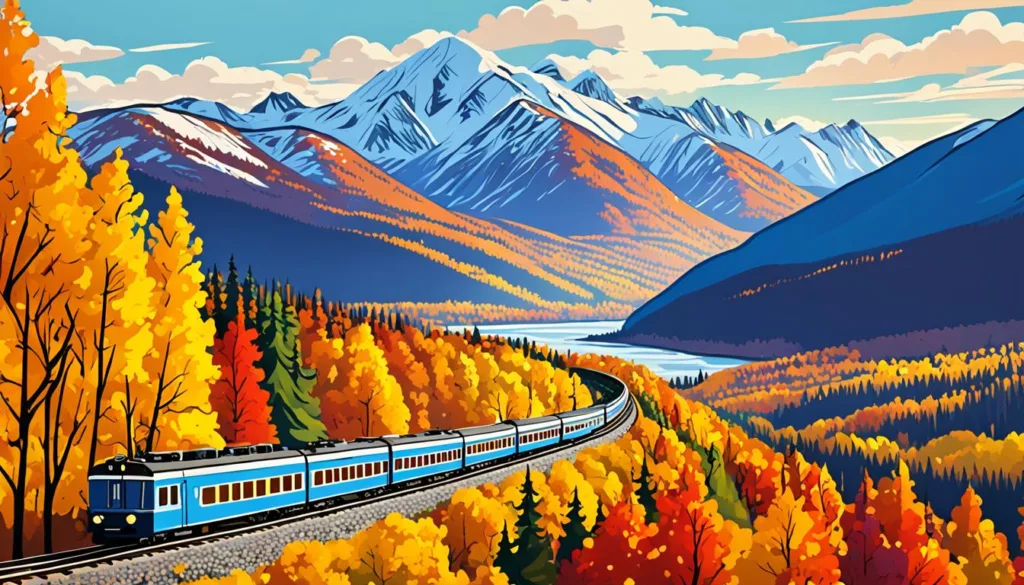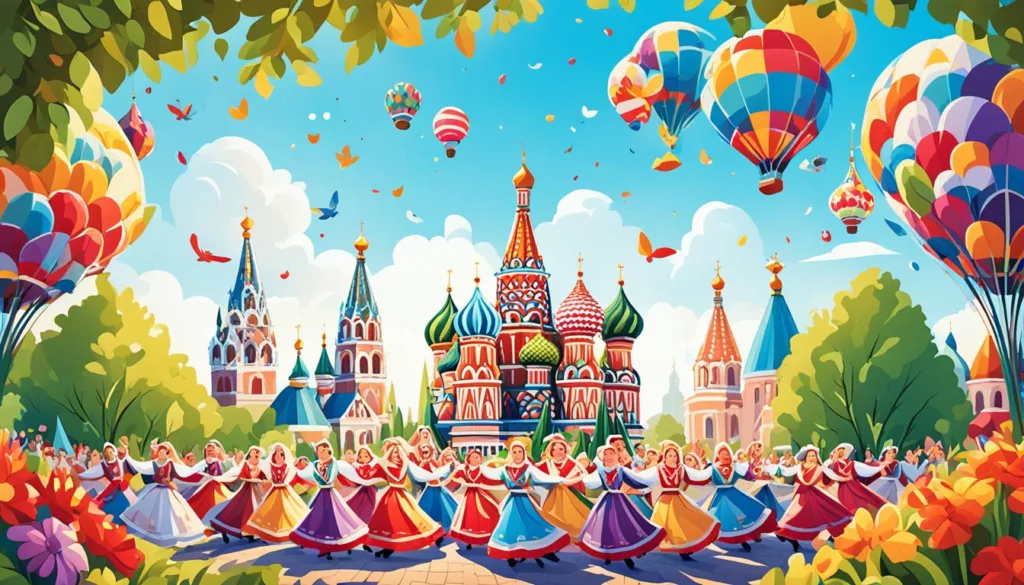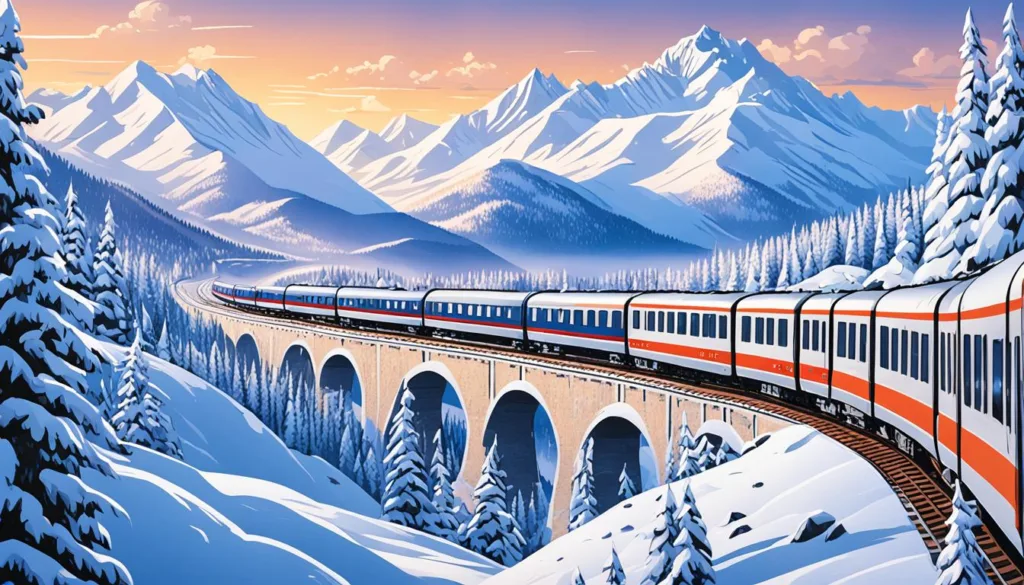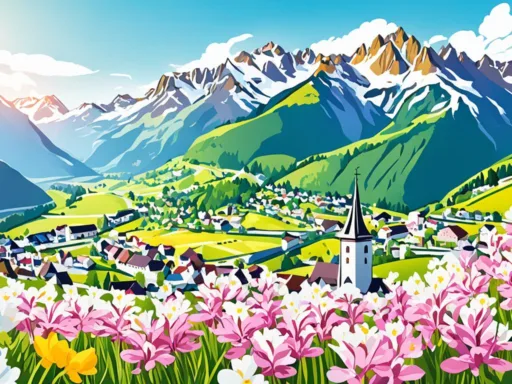Imagine navigating through the expansive reaches of the Russian Federation, where each season paints the country with a distinct palette of experiences. It’s a land that boasts diverse climates and cherished cultural events, but when exactly is the Best Time to Visit Russian Federation? Is it during the snow-smothered charm of winter with its crisp, fairy-tale vistas, or amid the balmy, perpetual twilight of the summer’s White Nights? Perhaps the answer lies between these peaks, when the rush of the top tourist seasons in Russia ebbs, unlocking the true rhythm of Russian life. As you contemplate your own voyage, consider aligning your travel calendar with the nation’s heartbeats of festivity and serenity.
Traveling in Russia extends beyond mere sightseeing; it’s plunging into a deep reservoir of cultural richness, especially during particular times of the year. Explorers seeking a journey replete with traditional festivals and fewer crowds would do well to strategize their visit around the months of May, June, September, or October. Yet, for the Russia travel season that vibrates with energy under the extended daylight hours, the summer months beckon with promises of festivities and warmth. Navigating these choices requires insight and perhaps a lucky guess or two, but fear not, the following pathways have been charted to assist you in discovering the periods that resonate most with your adventurous spirit.
Key Takeaways
- Understanding Russia’s varied climates is key to planning the right travel season.
- Peak tourist activities align with the summer months, but late spring and early fall may offer a more localized experience with fewer tourists.
- Travelers with a penchant for cultural affairs should consider May, June, September, or October for their visits.
- The White Nights of St. Petersburg present a unique and energetic atmosphere, although they coincide with the busiest tourist season.
- Winter activities showcase Russia’s pristine landscapes, presenting a different kind of travel opportunity for the adventurous.
- Cost-effective travel times in Russia are often found during the off-peak seasons, namely November, March, and late August.
- Each Russian season offers a unique set of festivals, activities, and scenery, validating the appeal of the country year-round.
Understanding Russia’s Diverse Climate for Optimal Travel Planning
Embarking on a journey to the vast and varied landscapes of the Russian Federation requires a keen awareness of its climate diversity. For the savvy traveler, aligning trip dates with regional climate patterns unlocks the door to comfortable exploration and cultural immersion. The Russian Federation climate recommendations suggest diligent preparation, given that the nation’s weather systems are as complex as its cultural tapestry.
Russian Federation Weather Guide: Regional Weather Patterns
When plunging into the specifics of Russian climate, geographical size plays a monumental role. Bound by Arctic chill in the North and continental warmth in the South, weather phenomena vary extensively. From the mild summers of the West to the biting cold winters of Siberia, a Russian Federation weather guide must take into account this sprawling spectrum of atmospheric conditions. Below is a climatic overview tailored to aid travelers in packing suitcases as shrewdly as they would plan their itineraries.
Summer: Experience the zenith of aureate days. In the cultural haven of St. Petersburg, daylight stretches luxuriously, painting over the White Nights festivities with a palette of infinite twilight.
Winter: Bracing yet magnificent, Russian winters cloak the country in pristine snow, transforming it into a wonderland that beckons the hearty souls yearning for frost-touched adventures.
Spring & Autumn: Transient yet vibrant seasons that allure visitors with their mild, temperate climates, and a motley of festivals sparkling under an idyllic weather canopy.
Ideal Months to Visit Russia: A Seasonal Analysis
Heed the sage advice of seasoned globetrotters and indigenous wisdom—there are ideal months to visit Russia. Parsing through the seasonal quirks, one uncovers that May, June, September, and October offer quintessential glimpses into Russian life unobscured by the throngs of peak tourist traffic. The table below distills these insights, juxtaposing them against less predictable but cost-effective times to travel.
| Month | Weather | Cultural Events | Tourism Traffic | Airfare Trends |
|---|---|---|---|---|
| May-June | Moderate/Warm | Festivals, Concerts | Lower (Early) | Stable |
| July-August | Warm/Hot | White Nights (St. Petersburg) | High | High |
| September-October | Mild/Cooling | Varied Regional Celebrations | Lower | Decreasing |
| November, March, Late August | Unpredictable | Fewer | Lowest | Cost-effective |
To finesse your Russian rendezvous, consider these Russian Federation weather guide cues earnestly. Earmarking the ideal months to visit Russia—imbued with cultural vibrancy and climatic grace—can morph an ordinary trip into an anthology of extraordinary memories.
Best Time to Visit Russian Federation: A Detailed Overview
When planning your journey to the vast and culturally rich Russian Federation, timing is everything. The best time to visit Russian Federation is influenced by numerous factors including climate, regional events, and personal travel preferences. In this detailed overview, we’ll navigate through the seasons to help you pinpoint the ideal period for your visit.

Summer months are often lauded for their comfortably hot temperatures and a vibrant array of festivals that bring the cities to life. In contrast, winter offers a wonderland-like experience with its serene snowy landscapes, perfect for an array of winter sports and cultural introspection due to fewer tourists.
Travelers looking for the quintessential Russian experience will find the summer months captivating, with extended daylight hours allowing for exhaustive explorations of northern cities.
- Summer: Balmy weather matched with the grandeur of White Nights offers unforgettable memories.
- Winter: Offers the pristine embrace of snow with the magic of the holiday season and a more tranquil atmosphere.
However, the transition seasons are not to be underestimated. March and April present visitors with the unique spectacle of a reawakening land, though caution is advised due to unpredictable weather that can turn streets into slushy pathways.
| Season | Weather | Activities | Considerations |
|---|---|---|---|
| Spring | Mild with occasional rainfall | Cultural festivals, city tours | Varied road conditions due to snowmelt |
| Summer | Hot, long daylight hours | Festivals, White Nights in northern regions | Peak tourist season; book in advance |
| Autumn | Crisp, picturesque foliage | Hiking, harvest celebrations | Milder tourist flow, more relaxed travel |
| Winter | Cold, snowy landscapes | Winter sports, traditional celebrations | Excellent service, lower rates, fewer tourists |
If you are still contemplating when to pack your bags for the Russian Federation, remember that the best time to visit largely depends on what you want to experience. Whether it’s the summer’s perpetual twilight or the silent allure of winter’s touch, Russia’s seasons are awaiting your discovery.
Summer Splendor: Experiencing the White Nights and Peak Tourist Season
As the Russian Federation basks in the glow of summer, travelers from around the globe flock to experience the exhilarating atmosphere of the top tourist seasons in Russia. The country transforms into a vibrant stage for a myriad of Russian Federation cultural festivals, drawing visitors into its unique blend of longstanding traditions and contemporary celebrations.
July and August in Russia: Weather, Festivities, and Crowds
The zenith of Russian summers presents lively city squares and idyllic countryside scenes under a ceaselessly luminous sky. Visitors are treated to the warmth of Russian hospitality amidst temperatures averaging between 22° C (71° F) and a comfortable 25° C (77° F). Although one might need to carry an umbrella to sidestep the occasional rain shower, these months offer the quintessence of Russian summer joy.
Nonetheless, while many revel in the exuberance of long daylight hours, it’s wise to remember the potential challenges it brings. In the far north, regions like St. Petersburg enjoy around 22 hours of daylight during the famed White Nights, an extraordinary spectacle that could take a toll on the unaccustomed traveler’s sleep cycle.
Annual Celebrations: Festivals and Cultural Events During Peak Season
The heart of summer gives way to landmark events, such as the internationally renowned White Nights festival of St. Petersburg, a true highlight encompassing classical ballet, opera, and music events. Not to be outshined, the International Ballet Award Festival and the Chekov International Theatre Festival showcase outstanding artistic talents attracting enthusiasts from across the world.
Cities across Russia commemorate their foundation days with unexpected artistic displays and communal festivities, cementing the peak tourist season as a time of jubilation and cultural immersion. It’s this eclectic fusion of activities and vibrant energy that propels Russia to the forefront of must-visit destinations during the summer months.
Winter Wonders on the Trans-Siberian Railway
When it comes to discovering the sheer magnitude of the Russian landscape, there’s no journey quite as epic and atmospheric as embarking on the Trans-Siberian Railway during the Russia travel season of winter. As snowflakes dance in the frigid air and the Siberian wilderness stretches out in an unbroken white canvas, passengers on the world’s longest railway are treated to a winter spectacle like no other.
The colder months, from December to February, offer travelers the unique chance to witness Russia cloaked in its winter finery. Appropriate attire converts the biting cold into a crisp companion to the rolling landscapes, while the warm and cozy interiors of the train carriages offer a snug retreat. Here’s why you should consider the Trans-Siberian Railway for your winter travel:
- The surreal quietude of the Russian winter provides a tranquil backdrop against which to muse, read, or simply gaze out of the window.
- Off-peak travel means fewer crowds, allowing for more authentic interactions and experiences with Russian culture and people.
- Riding the Trans-Siberian Railway in winter is a rite of passage that instills travelers with a sense of achievement and wonder.
Donning a warm coat and stepping off the train at various stops opens up a world of winter activities—ice skating on frozen rivers, attending unique local festivals, or engaging in snow games are just the tip of the iceberg. The stunning scenes and the chilly charm of this legendary train route ensure memories that stay with you long after your journey’s end.
“Traveling the Trans-Siberian Railway during winter reveals a side of Russia that few get to see, a true winter wonderland.”
| Month | Weather | Scenery | Activities |
|---|---|---|---|
| December | Snow begins to blanket the landscapes | Wintry forests and frozen lakes | Winter festivals |
| January | Peak of the Russian winter; very cold | Snow-covered cities and villages | Ice fishing, snowmobiling |
| February | Still cold but days start getting longer | Glittering icicles and snow drifts | Attending the end of winter celebrations |
The Trans-Siberian Railway is not just a mode of transport, but a central feature of a magical winter voyage through the heart of Russia. For those brave enough to venture into this frosty fable, the rewards are as limitless as the Russian horizon.
Spring and Autumn: Russia’s Best Kept Secrets
While the grandeur of Russian winters and the iconic White Nights of summer often steal the spotlight, Russia’s spring and autumn seasons remain the unsung heroes, offering spectacular opportunities for cultural immersion and natural appreciation. These transitional periods not only invite one to witness Russia’s dynamic festivals but also to savor the understated elegance of its changing landscapes.
Unmissable Spring Festivals and Cultural Blossoming
As the frost of winter melts away, Russia bursts into life with Russia’s spring festivals. The energy is infectious, with a calendar dotted by vibrant events that bring together locals and visitors alike. Cultural buffs can step into the historical theaters of Moscow during the Sobinov Memorial Festival of Music or revel in the open-air celebrations that sweep across St. Petersburg, blending classical sounds with the jovial spirit of anticipation for the warmer months ahead.

Here’s a snapshot of the remarkable springtime festivities across Russia:
- The Victory Day Parade, commemorating the end of World War II in Europe, showcases Russia’s pride and military heritage every May.
- The Easter Festival, spanning both Moscow and St. Petersburg, revels in spiritual and musical traditions, usually through April or May depending on the Orthodox calendar.
- The Stars of the White Nights Festival begins in late May and extends through July, characterized by outstanding ballet, opera, and classical music performances.
Autumnal Hues and Harvest Season: Regional Festivities and Natural Beauty
As summer fades, the Russian autumn landscape beauty unfolds in an array of warm colors that bedeck the nation’s vast swaths of forests and parks. The tourist bustle subsides, leaving the streets at a tranquil pace perfect for those who enjoy the quiet observation of fall’s splendor.
The cultural heartbeat of Russia doesn’t skip a beat as the leaves change. Harvest festivals and local celebrations continue in smaller towns and villages, providing an authentic glimpse into Russian traditions during this bountiful season.
| Festival | Location | Month |
|---|---|---|
| Golden Autumn Harvest Festival | Moscow | October |
| Day of the City | Various Cities | September |
| All-Russian Pushkin Poetry Festival | Pskov Region | September |
The Trans-Siberian Railway Journey: Expert Tips for a Winter Wonderland Adventure
Embarking on a Trans-Siberian Railway winter journey is nothing short of magical, with the stark beauty of the Russian winter unfurling before your eyes. This once-in-a-lifetime adventure presents an array of activities and cultural experiences that celebrate the season’s splendor. Beyond the scenic landscapes, the journey introduces travelers to the heart of Russian warmth through enduring cultural practices and winter festivities.

Adventures and Activities: Embracing the Siberian Cold
For those willing to brave the cold, winter along the Trans-Siberian route proffers exhilarating activities such as ice fishing on frozen lakes, dog sledding through snow-covered forests, and skiing down the slopes of the Ural Mountains. Wrapped in the pristine, icy landscapes, adventurers can immerse themselves in Siberian life with enthusiasm and vigor.
- Ice Fishing – A patient and serene endeavor allowing a deeper connection to the environment
- Dog Sledding – The thrill of gliding over snow with the joyous companionship of Siberian huskies
- Skiing – Challenging both beginners and experts with its diverse terrain and crisp mountain air
Winter Cultural Experiences Along the Trans-Siberian Route
The winter journey along the Trans-Siberian Railway isn’t just about the landscapes; it’s also a conduit to diverse Russian winter cultural experiences. As towns along the route don seasonal decorations, passengers become spectators to incredible ice festivals, each a display of artistic talent and winter camaraderie.
| Festival | Location | Date | Highlights |
|---|---|---|---|
| Lake Khuvsgul Ice Festival | Lake Khuvsgul, Mongolia | Early March | Icy sporting events, shamanic rituals, and folk concerts |
| Harbin International Ice and Snow Sculpture Festival | Harbin, China | January to February | World-class ice art, colossal sculptures, and illuminated ice worlds |
| Yakutsk New Year’s Ice Festival | Yakutsk, Russia | December to January | Fantastical ice architecture, fireworks, and cultural performances |
The striking artistry at the Harbin Snow and Ice Festival and the unique traditions showcased at the Lake Khuvsgul Ice Festival are vivid demonstrations of human creativity endured through extreme cold. These extraordinary events allow for deep cultural immersion and showcase the brilliance of winter festivities.
Conclusion
Embarking on a journey to the sprawling expanse of the Russian Federation warrants a thoughtful consideration of the ideal months to visit Russia. The country’s profound seasonal shifts are not simply meteorological facts, but serve as a stage for the nation’s vibrant seasonal offerings. Winter extends an invitation to the undaunted explorer, offering crisp snowy wonderlands and cozy cultural festivities. The allure of summer captivates with its famed White Nights, where days stretch endlessly, brimming with festivals and joyous revelry. Spring and autumn emerge as unsung heroes, enchanting visitors with their exclusive festivals and tapestries of natural splendor.
To truly embrace the Russia travel season, one must align their sojourn with personal interests. Adventure-seekers may find the energetically charged atmosphere of summer’s peak to coincide with their quest for ceaseless activity. Conversely, the serenity of autumn may resonate with those in pursuit of reflective moments amidst the golden hues of the season’s foliage. Amassing a mosaic of experiences, the legendary Trans-Siberian Railway slices through these contrasting landscapes, presenting a novel passage through time and seasons.
In the end, your decision on when to visit must be informed by your unique inclinations. Recognize the rhythms of your own travel heartbeat in sync with the pulse of the Russian environment. Factor in the practicalities laid out in the Russian Federation climate recommendations, and your expedition is poised to not just visit, but to resonate with the soul of Russia. Let the essence of each season inspire and guide your itinerary to ensure a travel experience that is not only memorable but also deeply personal and fulfilling.






